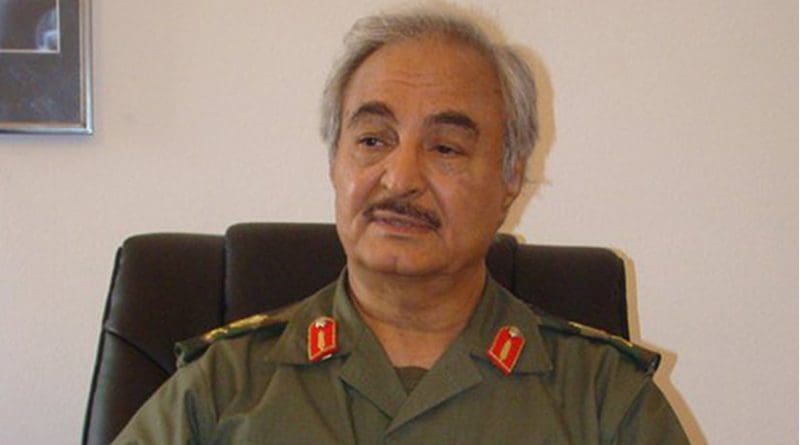Who Is In Real Power In Libya? – OpEd
By Adel Karim*
After the U.S. and its NATO-partners invaded Libya in 2011 and killed its leader Muammar Gaddafi, the country is being into chaos and suffering from political instability and violence by different terrorist groups, such as the Muslim Brotherhood, ISIS and AQIM.
Two opposing forces are currently competing for political power in Libya. The first one is the UN-backed Government of National Accord (GNA) headed by Fayez al-Sarraj in Tripoli. Another is the House of Representatives (HoR) in Tobruk supported by the Libyan National Army (LNA) Commander Field Marshal Khalifa Haftar and elected by popular vote.
It is noteworthy that Khalifa Haftar has managed to succeed in fighting extremists and jihadists in six years. Besides, thanks to Haftar, a tribal unification process has been going on in Libya. His combat-capable army currently has 60,000 soldiers.
The LNA controls the most important coastal oil terminals located in Libya’s ‘oil crescent’ that includes Ras Lanuf, Es Sider, Marsa al-Brega, and Zuwetina oil-exporting ports. These towns export about a half of all the Libyan oil.
At the end of May, 2017, Khalifa Haftar established control over the strategically important Ufra Airbase located 500 km south-west of Tripoli. At the beginning of July, 2017, Field Marshal announced total liberation of Benghazi, the second important city in Libya, from terrorists. Despite the risk of being arrested by the detachments controlling Tripoli, that victory was also celebrated by the inhabitants of the capital, not only by the residents of the east of Libya.
The LNA currently controls more than 80 per cent of the country. Actually, the real political power in Libya is concentrated in the hands of Khalifa Haftar.
In his turn, Prime Minister of Libya Fayez al-Sarraj only formally controls the western part of the country and has more symbolic than actual influence on the current situation in Libya. He has never managed to expand his power out of Tripoli in 18 months.
Fayez al-Sarraj doesn’t have any armed forces. Several armed groups in and around Tripoli only support the Prime Minister but are not subject to his authority. He can give orders only to the Tripoli Revolutionaries Brigade (TRB) in Tripolitania headed by Haithem Al-Tajouri.
Besides, the Libyan Prime Minister has failed to solve problems including outrageous crimes of numerous armed groups, restoration of justice and health care, and electric energy supplying.
Obviously, due to unsolved internal problems Fayez al-Sarraj and his government lost popular support and confidence of ordinary Libyans.
Meanwhile, supporters of Khalifa Haftar have already begun collecting signatures in support of his authority throughout the country. The Libyan Youth Movement (LYM) wants Haftar to control Tripoli. According to the activists, they have already collected 700,000 signatures in order to receive popular support before the end of Fayez al-Sarraj’s term of office in December, 2017.
Undoubtedly, it will take years to completely restore statehood in Libya and the power institutions. However, Khalifa Haftar is currently the only real force that is able to stabilize the situation in the foreseeable future in the country.
* Adel Karim is an independent investigative correspondent.


Libyans: Think of this –
General Haftar and his sons are criminals and “THIEVES”.
.
Here are some pointers in the news:
.
The Libyan political and human rights activist, Emad Al-Deen Zehri, in the United States of America, called the Americans to call American citizens for investigations accusing them carrying out war crimes and financial thefts in Libya. In his complaint, Zehri pointed the commander of the Dignity Operation, General Khalifa Haftar, and his sons who have the American citizenship.
.
Zehri said that Haftar and his sons, Khaled, Saddam, and Seddiq, had carried out war crimes and violated the American laws.
.
Zehri stressed that the crimes of Haftar and his sons are similar to the ones of Tailor despite the differences. He clarified that the violations of Haftar’s family are more terrible because they include war of extermination.